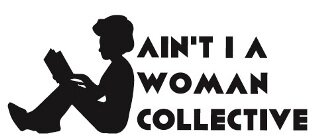Opinion: Playing Our Part: On Audre Lorde and the Trouble with Silence
By Yossie Paul
In recent times, I have come to learn that my writing is informed by two aspects of my life: my womanhood and my Blackness (African-ness, if you will). These things inform both my writing and my reading. I only began to understand this in the year gone by: my literary records were rather colourful and womanly – authentically womanly.
I discovered new things about myself and my way(s) of thinking. I discovered my passion – although this may change in the future, for now it is very real to me – and I discovered the importance of transforming silence into action or speech. For this, I give thanks to Audre Lorde, my fairy godmother. I discovered that – as a young Black woman who identifies with the concept of Womanism – it is important to understand the issues facing women (“of colour”) in the world today, even though I do not share all of them. Audre Lorde, in the essay titled The Uses of Anger,[1] writes that she is “not free while any woman is unfree, even when her shackles are very different from [my] own.” Lorde continues thus: “And I am not free as long as one person of Color remains chained. Nor is any one of you.”
Where am I going with this? Someone – a man – said that it irritates him that women (he was referring specifically to Black British women) who live comfortably always talk about the problems they do not even experience, painting themselves as “victims” of some kind of (nonexistent) oppression. It tugged at something within me. I was upset and I could not understand why, until I slept for about three hours and woke up with a sense of clarity. I was offended and somewhat disgusted by it because it was misguided, hurtful, and simply wrong. This man was being obtuse, and for some reason unknowable to the mortal mind, I took offence.
His comment took me back to the very thing Audre Lorde condemned in her writing and life — a passivity toward injustice, a fear of speaking the truth, a fear of speaking out against (our) oppression and universal structures of inequality, especially as they affect non-White, non-Western women. Audre Lorde suggested that holding on to fear holds us back – it hinders progress, because the less we speak out against what hurts us—what kills us—the more everything remains the same. Things cannot remain the same.
This very idea resides somewhere in the framework of intersectionality – where race, class, and gender, amongst others, meet. While I do not reserve the right to speak on the experience of another woman, it is in the interest of all women (especially non-White women) to support our sisters when they are in pain, when they are trampled upon. It is in the interest of all of us to dismantle structures of inequality.
That man’s comment – whether consciously or not – came from a place of patriarchal and, perhaps, male privilege. And it reminded me of what Audre Lorde wrote in her Open Letter to Mary Daly: “When patriarchy dismisses us, it encourages our murderers…[T]his dismissal stands as a real block to communication between us.”
I think I was hurt by it because of the possibility of an impressionable person seeing his statement and thinking, “Not my business.” Or, “It doesn’t affect you, so shut up.” This is a rather problematic way to look at oppression, suffering, and, quite frankly, injustice. That I do not relate personally to the issue another woman faces does not mean that I cannot speak out against it, standing firmly behind – or beside – her; because we need each other, and we need to recognise each other in order for us to come together.
Our differences, Audre Lorde says, must be embraced to “enrich our visions and our joint struggles.”
I am not free while any woman is unfree, and the differences – in colour, shape, and tightness – of our shackles are immaterial. We all have our work cut out for us, and we must play our part.
Editor’s note: The Ain’t I A Woman Collective has organised an event in collaboration with the SOAS Centre for Migration and Diaspora Studies for Friday, 24 April at 6:30pm to screen Audre Lorde – The Berlin Years, a film that highlights the impact of Audre Lorde on black politicisation in Germany. The event will be followed by a panel discussion with film maker Dagmar Schultz, friend of Audre Lorde and May Ayim, film protagonist Dr Marion Kraft and AIAWC founder/editor Ella Achola. Find out more here.
[1] All quotes can be found in Sister Outsider by Audre Lorde. Scanned pdf. here: http://issuu.com/yossiepaul-olaleye/docs/sister_outsider
Image: K. Kendall
About the writer:
Yossie identifies as an Afro-diasporic Yoruba girl. She is fixated on the concept of home, not [only] as physical place but as a feeling. Much of her writing deals with human interaction and our place – especially as women – in the world. Find her tweeting @yossiepaul!
